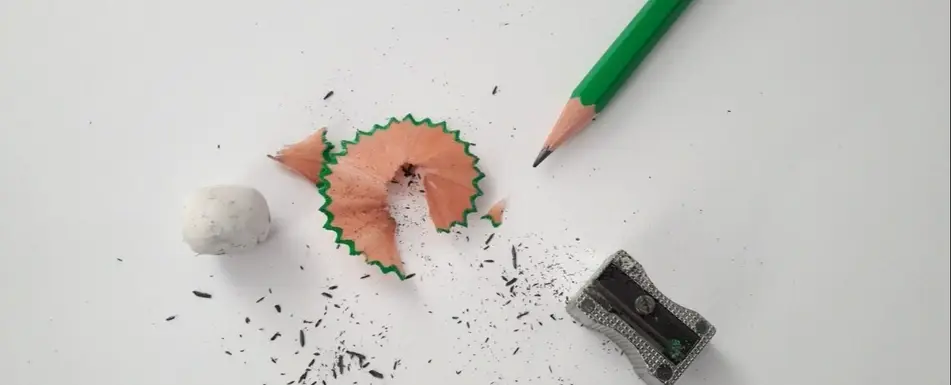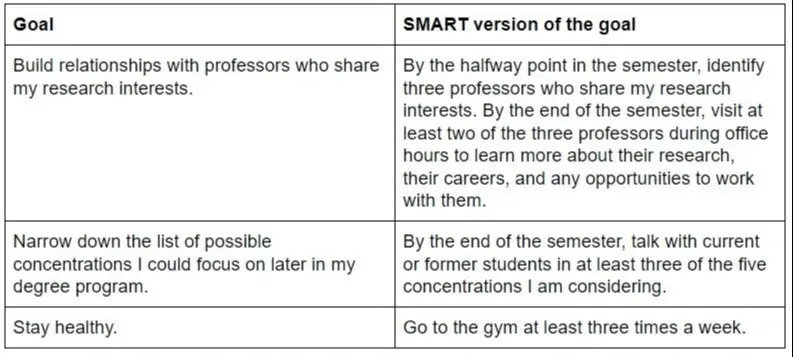Going Back to Graduate School? 4 Tips to Start Strong

Back-to-school jitters aren’t just for young kids. If you’re heading back to graduate school this fall after taking a few years off, it’s totally normal to be nervous about the adjustment. After all, it has probably been a while since you’ve had to deal with homework, group projects, and professors.
As an adult, you can channel that nervous energy into action that sets you up for success. Try one or more of these four tips to make sure you start your grad school career strong!
Set up your study space
Just as remote employees do best with a designated workspace at home, it’s good to have a space in your home that is just for your studies and schoolwork. Even if you prefer to work in a library or coffee shop, those places won’t always be available when you need them—but your study space at home will always be there.
Reflect on what you need in a study space to be successful. Will it help to be near a window and have natural light, or will the view distract you? Do you need absolute quiet, or does background noise help you focus?
Setting aside an entire room may not be feasible, but you can still create a distinct study space by placing a desk in the corner of your living room or bedroom and stocking it with pens, paper, a printer, and whatever else you’ll need.
Once your study space is set up, use it! Resist the urge to read textbooks in your bed or on your couch. Those places are for relaxing and sleeping while your study space is for focusing; you don’t want to confuse the two.
Set SMART goals for your first semester
SMART is an acronym that stands for Specific, Measurable, Achievable, Relevant, and Time-Bound. Setting a SMART goal ensures you are using your time wisely (because you’re working toward a goal that is achievable and relevant) and makes it easier to assess how you’re doing (because the goal is specific, measurable, and set within a time frame).
You may already have some goals in mind for your first semester—but are they SMART? Look at the differences between the goals on the left side of this chart and the right side of this chart, and then try to make your goals SMARTer.

Adjust other commitments as needed
Going to graduate school is a big time commitment and lifestyle change, so fitting it into your schedule will most likely require adjusting other commitments. But how, and where should you begin?
First, make a list of all your non-school commitments: work, caregiving, volunteering, community leadership positions, and hobbies. Rank the commitments by how much time you spend on them per week so you can get a sense of where your time is going.
Then, ask yourself the following questions:
- How important is this commitment to me? Is it a top priority? Why am I doing it? Sometimes you’ll find that your schedule has filled up from saying “yes” to everything, instead of choosing the things that are most important to you. Since going to school will limit your free time, it’s best to focus your available time and energy on the things that are most important to you.
- To what extent can I adjust this commitment? It’s possible that you can’t adjust some of your commitments at all. If you are the sole caregiver for a child or an elderly parent and hiring someone else to help isn’t an option, then you need to keep that commitment and fit everything else around that. But in other areas, you may be able to step down from a leadership position in an organization while remaining involved as a general member or cut your volunteer shifts from weekly to biweekly.
Once you’ve pared down existing commitments, keep your schedule manageable by thoughtfully considering any new demands on your time that arise. If it’s not a priority and doesn’t fit into your schedule, it’s okay to say no. If it is a priority, use the same questions listed above to re-evaluate the rest of your responsibilities and adjust as needed.
Be kind to yourself
It’s totally normal for things to feel rocky while you’re getting used to going back to school. Just because things are tough in the beginning doesn’t mean it will always be like that. So, be kind to yourself and cut yourself some slack.
If you find yourself slipping into self-criticism or nearing despair over how things are going, take a deep breath (or multiple breaths) and remember that most things in this world that are worth doing will feel hard at times.
Also remember that this is an exciting time! Graduate school is something you are choosing to do to meet your goals, and it can open up a lot of new doors. Just stay focused on why you’re there and be kind to yourself as you experience this exciting journey.
Did you enjoy this post? There's plenty more where this came from! Subscribe here for updates.
As a nonprofit advocacy professional living in Washington, D.C., Deborah works with groups across the country to educate their communities and lawmakers about public policies that can help low-income residents make ends meet. She is passionate about helping people connect their interests to a cause they believe in and empowering them to take action.


